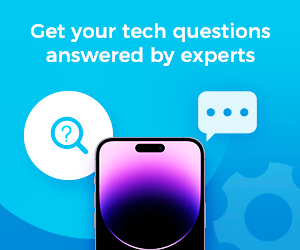Released in 2018, the iPhone XR and the iPhone XS are both parts of Apple’s 12th generation of smartphones. While looking similar in design, there are numerous underlying differences that we will highlight in this article.
If you’re at a loss of whether to buy the iPhone XR or the XS, you are in the right place. We will do a deep dive and compare the main features of both devices to help you understand which one is right for you. Let’s begin with the display and design.
Main features
| Feature | iPhone XR | iPhone XS |
| Camera | 12 MP | Dual 12 MP |
| Display | 6.1” LCD | 5.8” OLED |
| RAM | 3 GB | 4 GB |
| Battery capacity | 2942 mAh | 2658 mAh |
| Front camera | 7 MP | 7 MP |
| Processor | A12 Bionic | A12 Bionic |
| Launch date | October 2018 | September 2018 |
| Storage | 64 GB | 64 GB |
iPhone XR vs. iPhone XS: Display and design
The XR has a 6.1” display while the XS has a display of 5.8”. In this aspect, the XR is larger. However, the XS’s display is way better than the XR’s. While they have the same aspect ratio of 19.5:9, the XS has an OLED display, 458 PPI, and an 82.9% screen to body ratio.
On the other hand, the XR has an LCD display, 79% ratio, and 326 PPI. As such, the XS gives you better screen resolution for HD videos compared to the XR. In fact, you’ll have a hard time watching 1080p videos at all on the latter.
When it comes to design, both look identical but that’s not the case. The XR measures 5.94” x 2.98” x 0.33” while the XS measures 5.65” x 2.79” x 0.30” and weighs 177 grams. The XR is bulkier, with a weight of 194 grams, and has a thicker hand-feel.
Both utilize the same glass when it comes to the front and backside. However, the edges of the iPhone XS are made of stainless steel while those of XR are made of aluminum. As you might expect, the steel frame is tougher than the aluminum frame.
While both are water-resistant, the XS has an IP 68 protection rating and the XR has an IP 67 protection rating. A device’s IP rating measures its ability to keep out dust (the first number) and water (the second number). The higher the number, the better. With an IP water resistance rating of 8, the iPhone XS can survive in water at a depth of at 2 meters for 30 minutes.
For both, expect stereo sound, highly-responsive face ID, and tactile buttons.
iPhone XR vs. iPhone XS: Cameras
Now, another aspect that many buyers consider is camera quality. It seems like every phone company has been trying to one-up each other with better and better cameras. While Apple has been far from an industry leader in terms of megapixel count, it’s worth knowing the difference between the XR and XS cameras.
Both have a 7 MP front camera. The XR has a single 12 MP rear camera, while the XS has a dual rear camera (12 MP + 12 MP). Also, they both support Apple’s Smart HDR processing feature that combines numerous photos taken at different light settings to present you with a compact but high-quality image.
The XS also comes with the 2x optical zoom feature that allows you to zoom in on objects without getting closer to them. However, both the XR and XS support Apple’s portrait mode and come with fast-sensor selfie cameras. While photos from both phones seem familiar, pictures on the XS will likely seem more colorful and have better contrast.
iPhone XR vs. iPhone XS: Battery life
Despite being the more affordable model, the XR’s battery will last longer than an XS’s. For one, the XR’s LCD display does not drain the battery as quickly, as it is less energy demanding. Furthermore, the 6.1” size means that it can fit a larger battery inside. To compare, the XR has a 2942 mAh battery while the XS has a 2658 mAh battery.
With the iPhone XS, you can enjoy (in ideal conditions) 20 hours of talk time, 12 hours of internet surfing, 60 hours of audio playtime, or 14 hours of video playback. On the other hand, the XR allows for 25 hours of talk time, 15 hours of internet use, 65 hours of audio playback, or 16 hours of video playback.
Which one should you buy? Well, it depends on how you use your phone. The XR will last longer than the XS, but you’ll get a better experience out of those fewer hours with the XS.
Both iPhones support fast charging: allowing you to charge your iPhone 50% in 30 minutes with the appropriate charger. Unfortunately, neither phone comes with a fast charger, so you’ll have to buy it separately. For fast charging, you’ll need both a cable and charging adapter that supports USB Power Delivery. You could also use one of Apple’s Smart Battery Cases, which will allow you to use your phone for quite some time.
iPhone XR vs. iPhone XS: Performance
When it comes to performance, the two iPhones are largely identical. Both feature iOS 12, which can be updated to 13.5; The A12 Bionic chipset; a Hexa-core CPU; and a 4-core Apple GPU.
The iPhone XR has 3 GB of RAM while the XS has 4GB. While the latter is higher, it’s not going to make a huge difference, experience-wise. As such, you’ll enjoy similar game framerates, app loading times, and basically any other day-to-day functionality.
iPhone XR vs. iPhone XS: Storage
Both phones have the same 64 GB base storage space but at different prices. You can get the 64GB XR on Amazon for $479.99 and the iPhone XS for $529.95. The XR is also available in 128GB and 256GB, while the XS is available in 256GB and 512GB. Of course, these higher-capacity models will be priced accordingly.
iPhone XR vs. iPhone XS: Other features
Both the iPhone XR and the XS come with similar sensors such as a barometer, light sensor, proximity sensor, compass, accelerometer, and gyroscope. Unfortunately, both lack a fingerprint sensor, as Apple has tried to shift to Face ID. As both phones use iOS, they support the exact same apps, including iTunes, Find My Friends, FaceTime, and Find My iPhone.
The two phones also come with dual SIM capability enabling you to use a Nano-SIM for SIM1 and an eSIM for SIM2. Both phones support 4G, 3G, and 2G. Unfortunately, you cannot expand the storage, the battery cannot be replaced, and neither has FM radio support.
iPhone XR vs. iPhone XS: Verdict
For the most part, the difference between the iPhone XR and XS can be summarized as “you get what you pay for”. The XS has slightly better hardware than the XR and is therefore slightly more expensive.
That said, the XR has a larger battery than the XS and a bigger display (even if it’s lower-quality). It doesn’t have the iPhone XS’s 2x zoom camera, but most photographers would tell you that it’s better to get closer to your subject than zooming in (“move your feet, not your lens”). As such, for the vast majority of users, we’d recommend going with the XR.





